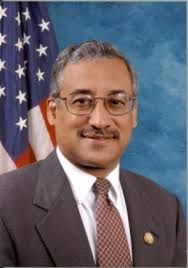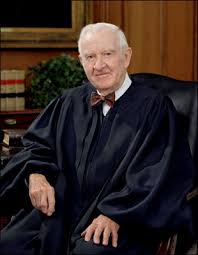( – promoted by lowkell)

Men, we have fought through the war together. I have done the best that I could for you.
Gen. Robert E. Lee spoke those words when he returned to his men, from the home of Wilmer McLean, where on this morning he surrendered his Army of Northern Virginia to Ulysses Grant. Officially our nation’s bloody, internecine conflict was over. Lee’s troops were paroled by Grant. When Lee asked for help feeding his nearly starving men, Grant responded with generosity, using the food that the men of George Armstrong Custer had seized on a train before Lee’s men could get there.
Allow me to offer a few reflections on Appomattox Court House, the site of both the final battle early that morning, and of Lee’s surrender. I think there are lessons that are relevant today.
Yes, Lincoln would soon die at the hand of John Wilkes Booth. But I back up one month, to his second inaugural. There are words there which Gov. Bob McDonnell should have remembered before he issued his proclamation for Confederate History Month, in which Lincoln says it bluntly in words I will emphasize in this passage:
One-eighth of the whole population were colored slaves, not distributed generally over the Union, but localized in the southern part of it. These slaves constituted a peculiar and powerful interest. All knew that this interest was somehow the cause of the war. To strengthen, perpetuate, and extend this interest was the object for which the insurgents would rend the Union even by war, while the Government claimed no right to do more than to restrict the territorial enlargement of it. Neither party expected for the war the magnitude or the duration which it has already attained. Neither anticipated that the cause of the conflict might cease with or even before the conflict itself should cease. Each looked for an easier triumph, and a result less fundamental and astounding. Both read the same Bible and pray to the same God, and each invokes His aid against the other. It may seem strange that any men should dare to ask a just God’s assistance in wringing their bread from the sweat of other men’s faces, but let us judge not, that we be not judged. The prayers of both could not be answered. That of neither has been answered fully.
Lincoln, while the war still raged, even as the eventual outcome seemed clear by the time he spoke these words, was noting no superiority, even as he abhorred the institution of slavery. Still, he insisted the time for slavery was at an end, regardless of the cost:
Fondly do we hope, fervently do we pray, that this mighty scourge of war may speedily pass away. Yet, if God wills that it continue until all the wealth piled by the bondsman’s two hundred and fifty years of unrequited toil shall be sunk, and until every drop of blood drawn with the lash shall be paid by another drawn with the sword, as was said three thousand years ago, so still it must be said “the judgments of the Lord are true and righteous altogether.”
And yet, he spoke with a generosity of heart even as some in the South insisted on prolonging the conflict:
With malice toward none, with charity for all, with firmness in the right as God gives us to see the right, let us strive on to finish the work we are in, to bind up the nation’s wounds, to care for him who shall have borne the battle and for his widow and his orphan, to do all which may achieve and cherish a just and lasting peace among ourselves and with all nations.
a just and lasting peace among ourselves
Perhaps there is something ironic at the place of surrender. Wilmer McLean in 1865 had resided near Manassas Junction, at which point the first real fighting between a unified Confederacy and the Union had occurred – remember, only 7 of the CSA had seceded before Fort Sumter. The First Battle of Bull Run began with an artillery barrage aimed at McLean’s home, serving as headquarters for Gen. Beauregard. McLean, a wholesale grocer and retired Major in the Virginia Militia, moved South and worked to supply the Southern forces with sugar – although he had lived in Northern Virginia, his business was largely in the Southern part of the Commonwealth. He was later reputed to have said “The war began in my front yard and ended in my front parlor”.
Had Lincoln not died, and given both his political skill and his status as a moral figure, this nation might well have avoided the various problems that flowed from Reconstruction.
a just and lasting peace among ourselves
Lee tried to set the grounds for that with his farewell to his Army:
After four years of arduous service, marked by unsurpassed courage and fortitude, the Army of Northern Virginia has been compelled to yield to overwhelming numbers and resources.
I need not tell the survivors of so many hard-fought battles who have remained steadfast to the last that I have consented to this result from no distrust of them; but feeling that valor and devotion could accomplish nothing that could compensate for the loss that would have attended the continuance of the contest, I determined to avoid the useless sacrifice of those whose past services have endeared them to their countrymen. By the terms of the agreement, officers and men can return to their homes and remain until exchanged.
You may take with you the satisfaction that proceeds from the consciousness of duty faithfully performed, and I earnestly pray that a merciful God will extend to you his blessing and protection.
With an unceasing admiration of your constancy and devotion to your country, and a grateful remembrance of your kind and generous consideration of myself, I bid you all an affectionate farewell.
I determined to avoid the useless sacrifice of those whose past services have endeared them to their countrymen. Lee still thought of his countrymen as fellow Southerners, still more citizens of their states than of the larger nation. And yet, there is also something worthy about how his men were loyal to him as a leader. Yes, we can criticize the cause for which they fought so fiercely, although we should remember that the vast majority of Lee’s soldiers were not themselves slaveholders. They had been persuaded, however wrongly, that the cause for which they fought was a noble one, so they fought fiercely.
We are not yet in a state of war, although there are too many incidences of violence in our current political environment. I do not doubt that there are some who manipulate fear and exaggerate worry for their own benefit, even as they do not really care about either the cause at which they aim the rage they foment or the suffering that will ensue, suffering not only for those targeted, but also by those whose rage has been fomented.
Still, it is not massive armed conflict.
I often wonder if some in our nation are not too consumed with winning at any cost. Or if they are blind to what is happening around them, either because they are so narrowly focused or because they willfully ignore the hurt and the harm. I see this happen on both sides. And I then think back to the Civil War, the buildup, the four years of fighting, the aftermath, and wonder how little we truly learned from that bloody period of our history.
Lincoln looked at healing this nation. He looked beyond. I have twice quoted a phrase, but done so incompletely. Here is the complete phrase:
to do all which may achieve and cherish a just and lasting peace among ourselves and with all nations
… and with all nations
If we are not willing to achieve peace among ourselves we cannot serve as a leader in an attempt to achieve peace around the world, certainly not a just peace, not a lastingpeace
How we do our politics plays a major role in the aftermath, even when we win, as we did in November of 2008.
Lincoln has always been the President I most admired, even as I might acknowledge his human weakness. It is not just that, like him, I have often suffered depression. It is that he had a largeness of heart towards others, even as he had a willingness when necessary to act firmly, taking upon himself the burden of the anger that might ensue.
I think all who assume the role of leadership need to remember that to act honorably may cost one – position, wealth, family, health, even life itself.
Lincoln faced death threats even as he traveled to Washington to assume the office of President. Violence is, as Malcolm X once noted, as American as cherry pie. We tend to forget all those of our political leaders who faced it, some of whom died, some of whom were wounded. It is not unusual in our society for those who seek to move the country in a different direction also suffered from violence, as we remembered 5 days ago on the anniversary of the death of Martin Luther King.
I look back at Appomattox. I look at the generosity of Grant, reflecting the generosity of his President. I look at Lee setting an example for his men of ceasing the conflict, of preserving lives, of getting on with life.
Then I look at our current political climate. I wonder how many of those engaged in rhetorical disputation implying, encouraging, even inciting the use of violence truly know about our history, including Appomattox. I see elected figures raising yet again the idea of nullification. I am quite aware that Jefferson was the first to significantly pose the theory, and this while sitting as Vice President under Adams. I remember another Vice President, John C. Calhoun, who argued for the principle. And I cannot forget a four year war and the death of well over a half a million when some sought to put that principle into action by secession.
We should study history. We should do so honestly, even as the temptation often is to do so selectively, just as for many they will read documents selectively, be they the Bible or the Constitution.
Robert E. Lee knew that he had lost. He had enough sense and moral courage not to further waste lives, either of his men or of those they might kill.
Appomattox could have been a key point in the healing of this nation. Perhaps looking back, we can use it as a reminder that can help us heal our current divisions.
If not, then we travel backwards, past Appomattox, to a time of real conflict, with death and destruction.
I hope and pray that we learn, that we not again engage in brutal internecine conflict. I remember that people argued from what they believed to be principle, but as rhetoric escalated it lead to physical violence as well.
145 years ago the Civil War effectively ended. We need not start it up again.
Today, looking back, my usual final word seems most appropriate.
Peace.
just and lasting peace among ourselves and with all nations


 The following is a statement just issued by the Republican Third Congressional District Committee. it will be fun watching Rep. Bobby Scott (D) defeat Chuck Smith by 70,000 votes or so this November. Actually, if
The following is a statement just issued by the Republican Third Congressional District Committee. it will be fun watching Rep. Bobby Scott (D) defeat Chuck Smith by 70,000 votes or so this November. Actually, if  West Virginia Governor Joe Manchin has
West Virginia Governor Joe Manchin has  A bit earlier this morning, Supreme Court Justice John Paul Stevens
A bit earlier this morning, Supreme Court Justice John Paul Stevens 







